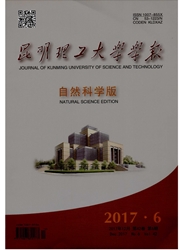

 中文摘要:
中文摘要:
低温生长的适应是一个复杂的过程,涉及细胞的分子生物学和生物化学等很多方面.前期的研究表明,产油真菌——深黄被孢霉(Mortierella isabellina)M6-22能在5-35℃的温度范围生长.本研究以其为研究对象,分析温度下降引起的M6-22细胞膜流动性、多不饱和脂肪酸含量以及多不饱和脂肪酸合成相关基因的mRNA转录水平的变化.结果显示,在15℃条件下,M6-22的细胞膜流动性明显降低,而多不饱和脂肪酸含量显著提高,由30℃时20.85%增加到15℃时的31.04%,而且15℃时Δ^12-脂肪酸脱氢酶基因mRNA转录水平提高了近3倍,但是Δ^6-脂肪酸脱氢酶基因mRNA转录水平基本不变.这些研究结果表明,深黄被孢霉M6-22可能通过提高Δ^12-脂肪酸脱氢酶基因的表达水平,增加膜脂中多不饱和脂肪酸含量,维持低温条件下细胞膜的流动性来促进细胞低温环境的适应.本研究将为研究低温条件下多不饱和脂肪酸合成调节机制以及进一步多不饱和脂肪酸工业化生产打下基础.
 英文摘要:
英文摘要:
Adaptation to low-temperature growth is complex,involving many aspects of the molecular biology and biochemistry of the cell. Our previous study has indicated that Mortierella isabellina strain M6-22,an oleaginous fungus,is able to sustain growth at temperatures ranging from 5℃ to 35℃. In this study,the changes in cell membrane fluidity,content of polyunsaturated fatty acids and mRNA expression levels of desaturase genes of M6-22 in response to temperature downshift is analyzed. The results show that the membrane fluidity of M6-22 is significantly reduced when the culture temperature decreases from 30℃ to 15℃,but the content of polyunsaturated fatty acids including linoleic acid and γ-Linolenic acid increases significantly from 20. 85% to31. 04%. Furthermore,the mRNA transcription level of Δ12-desaturase gene is about 3-fold higher in M6-22 grown at 15℃ than in those grown at 30℃,but the mRNA transcription level of Δ6-desaturase gene does not change significantly with the downshift of temperature. These results indicate that reduced membrane fluidity at low temperature induces higher genes expression of polyunsaturated fatty acids biosynthesis,which might result in higher content of polyunsaturated fatty acids accumulated in M6-22 to maintain the membrane fluidity at low temperature and enhance its cold adaptation. This study will provide a basis for exploring the regulation mechanisms of polyunsaturated fatty acids biosynthesis at low temperature and further industrial application for PUFAs production.
 同期刊论文项目
同期刊论文项目
 同项目期刊论文
同项目期刊论文
 期刊信息
期刊信息
